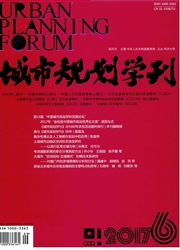

 中文摘要:
中文摘要:
城市规划的科学决策需要对其社会经济价值有较准确的判断和评估,但由于其公共物品特性使得常规的价值评估方法难以实施。CVM(Contingent Valuation Method)通过陈述偏好的方式量化评估公共物品相关建设活动的社会收益,是近年来最重要的和应用最广泛的关于公共物品价值评估的方法。对上海城市街头公园——松鹤公园的改造价值评估应用CVM进行实证研究.得到松鹤公园滨水改造的平均家庭收益是22.26元/户·月.其社会总收益量是399万元/年,折合现值为3235万元。研究发现.城市街头公园对个人的收益随居住地与公园之间的距离增加而迅速递减:城市街头公园改造的使用者与投资者差异不仅是居民使用与政府投资的分离。还有甲地居民使用.乙地政府投资式的错位.
 英文摘要:
英文摘要:
Urban planning needs more accurate judgments and assessments on value of public goods to help decision-making, but the characteristics of public goods make conventional valuation method difficult to implement. Contingent Valuation Method, which avails stated preference approach to estimate the social benefits of public goods, is the most important and widely used method in the valuation of public goods in recent years. The CVM study on Songhe Park, a street park in Shanghai, shows that residents benefited 22.26 Yuan per household per month and the amount of total social benefits are valued at 3,990,000 Yuan per year, equivalent to the present value of 32.35 million Yuan. The study also reveals that the individual benefit from a street park will rapidly decrease when the distance between homes and the park increases. Moreover, the conflict arises from the mismatch between users and investors as users are residents in area A while investor is government in area B.
 同期刊论文项目
同期刊论文项目
 同项目期刊论文
同项目期刊论文
 期刊信息
期刊信息
